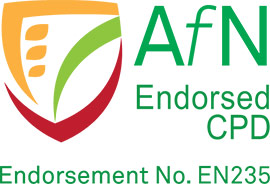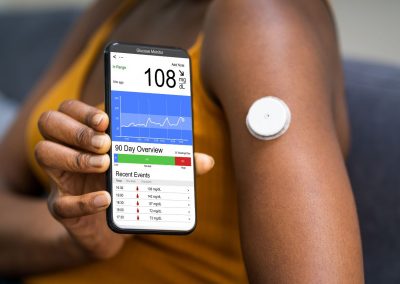
Free
60mins
Chrono-Nutrition in Practice:
What factors may affect adherence to time-restricted eating?
Dr Wendy Hall RNutr
Tuesday 11 October 20:00–21:00 BST
CONTENT AND LEARNING OBJECTIVES:
Chrono-nutrition is an emerging field of nutritional science that is gaining traction. It aims to understand how the timing of energy intake across the day may impact health.
Observational studies have found that, independent of energy intake and physical activity, the timing of food intake may be able to influence weight gain and cardiometabolic health. There are also some larger RCTs investigating the mechanisms behind this in the pipeline, but how much do we know now?
Although this area of research is still an emerging field, many people are attempting to follow varying time-restricted eating patterns in the pursuit of health.
This Journal Club session discusses the results of a survey conducted within a university community to find out what motivates people to undertake time-restricted eating and what factors are likely to influence adherence. The session will also give an overview of the research and consider the implications for future research and clinical practice.
Watch this webinar to
Gain clear understanding of:
- The concept of time-restricted eating
- Challenges in adherence to time-restricting eating
- The links between eating behaviour and sleep timings
Be aware of:
- Limitations of interpreting data from a self-selecting population
- Limitations of questionnaires in gaining depth of insight into motivations and barriers
- Challenges in designing studies to investigate effects of time-restricted eating on health outcomes
Be able to:
- Explain implications of this research to scientists planning a time-restricted eating intervention study
- Communicate relevance of this research to other health care professionals with respect to clinical practice
- Summarise current understanding of likelihood of compliance to time-restricted eating regimes
Help us to continue providing expert nutrition learning
If MyNutriWeb has helped you deepen your knowledge of dietary and nutritional subjects, join us to help support and educate people to eat well for themselves and the planet. Read more...

Expert speaker
Dr Wendy Hall RNutr
Reader of Nutritional Sciences, Department of Nutritional Sciences, King’s College London
Dr Wendy Hall (RNutr) is a nutritional scientist and Reader at King’s College London. She completed her PhD (2001) on protein and appetite at the University of Surrey where she stayed for another 2 years to research vitamin E metabolism. Following 3 years as a postdoctoral researcher at University of Reading, investigating cardiometabolic effects of soy isoflavones and unsaturated fatty acids, Wendy was appointed to an academic post at King’s in 2005. Wendy’s research mainly involves dietary interventions, sleep-diet interactions and their impact on cardiovascular disease and type 2 diabetes. She is Theme Leader for Nutrition and Optimum Life-course for the UK Nutrition Society.
Paper reference
This session discusses the paper: Jefcoate, P, Robertson, D, Ogden, J, and Johnston ,J. Identification of factors influencing motivation to undertake time-restricted feeding in humans. Appetite. 2021; 164:105240

About Journal Club Chair, Dr Caroline Childs
Each Journal Club session is chaired by Dr Caroline Childs, Nutrition and Metabolism subject lead in Medicine at the University of Southampton. She received student-nominated awards for ‘most engaging lecturer’ and ‘best pastoral support’ and a colleague-nominated award for teaching excellence. Dr Childs is a Nutrition Society Ambassador and a South East Regional Representative for the Association for Nutrition.
As she says, “Developing skills in critical appraisal is an essential part of being a competent nutrition professional – whether you’re a dietitian, nutritionist or health professional specialising in nutrition.”
APPRAISING RESEARCH PUBLICATIONS
Nutrition research reported in the media often highlights mixed or contradictory results between studies. So, as a nutrition professional, how can you ensure you use the strongest available evidence to inform your practice?
CPD CERTIFICATE & LEARNING MATERIALS
This webinar has been approved for CPD by the AfN

Once you have viewed a full recorded session the mynutriweb team will review and arrange to send you your certificate via email from hello@mynutriweb.com within two weeks of viewing the session.
Popular Now

Professor Bruno Pot: Probiotics and the gut microbiota: key players in health?

Dr James Kinross: Faecal microbiota transplants: how it works and why it doesn’t

Personalised Nutrition for Metabolic Health
This website is intended only for students or professionals working in food, nutrition and health. If this is you, please click to continue.



